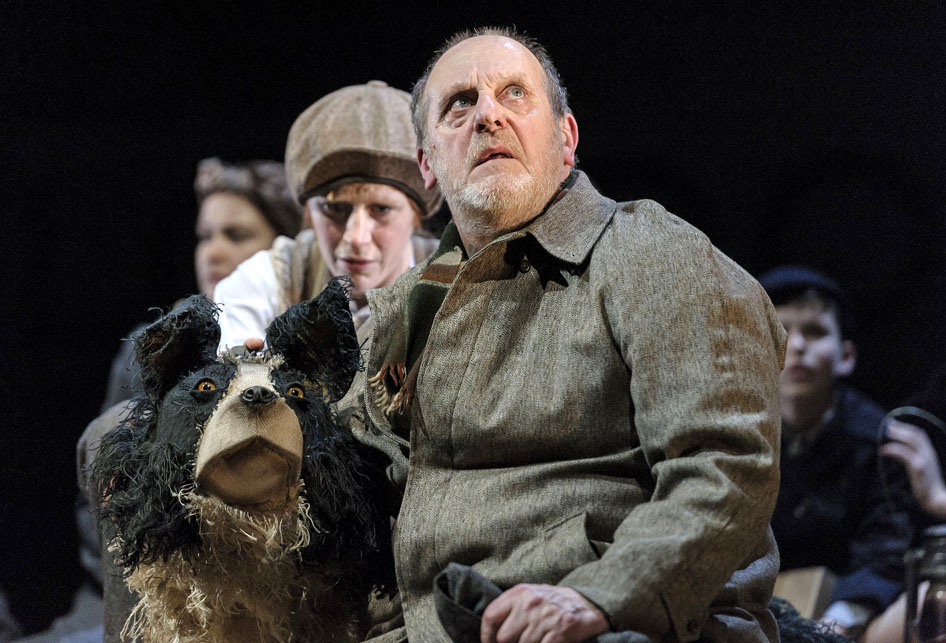
There’s a lot to be said for a simple story well told and Goodnight Mister Tom is such a one. For a whole generation of British children brought up in the city, the experience of being evacuated during the Second World War was seminal, and for some, life changing. The play by David Wood, based on the novel by Michelle Magorian, examines the healing effect of love and community on a boy starved of both in a wretched urban existence in London.
Little William Beech (Alex Taylor-McDowall), malnourished and mistreated, a whimpering shadow of a boy, is randomly billeted with Tom Oakley (David Troughton), a reclusive and sullen widower. So begins a relationship, which changes both their lives for the better. Mr Troughton has the measure of this part. Brusque and comfortably grumpy, he shows us an underlying humanity irritated by half-healed wounds of loss. A pleasing burr to his voice places him in the caressing fold of a longed-for England that perennially seems to offer a balm to present anguish. Ego-less he yet fills the stage and holds the measure to everything and everyone else. Unsentimental and understated, it is a weighty performance brimming with emotion and meaning.
Opposite him (last night), Master Taylor-McDowell has been encouraged by director, Angus Jackson, to show a lad, crushed yet without self-pity, on a journey to emotional and social health. The rainbow jumper of his dead friend, which he dons at the end, stands as a simple metaphor for a convincingly transitioned change of personality.
We doff our hats to the display of precocious enthusiasm given to us – last night – by Oliver Loades’ innocently bumptious Zach, the Jewish lad from a theatrical background. His death during an air raid whilst on a home visit left the stage the poorer.
Melle Stewart gets the actor’s gift of two contrasting parts; the sympathetic Annie Hartridge, the newly-wed who promptly loses her airman husband to the Luftwaffe thus finding herself pregnant and widowed, and secondly, William’s psychotic mother whose severe understanding of her religion leads to her brutalizing the boy and abandoning her bastard baby. Ms Stewart’s job is made a little easier for the characters being sketchily drawn, but the transformations are complete and it wasn’t until glancing at my programme that I realized the doubling up.
A final word must go to the puppet dog. We’ve become used over the past few years to puppeteers unabashedly manipulating their models in full view. The approach works again here and the presence of the animal adds to the healing atmosphere of rural Dorset.
This present revival remains one of the better and more affecting examinations of life in wartime Britain. ★★★★☆ Graham Wyles 27th April 2016
Photo credit – Dan Tsantilis

